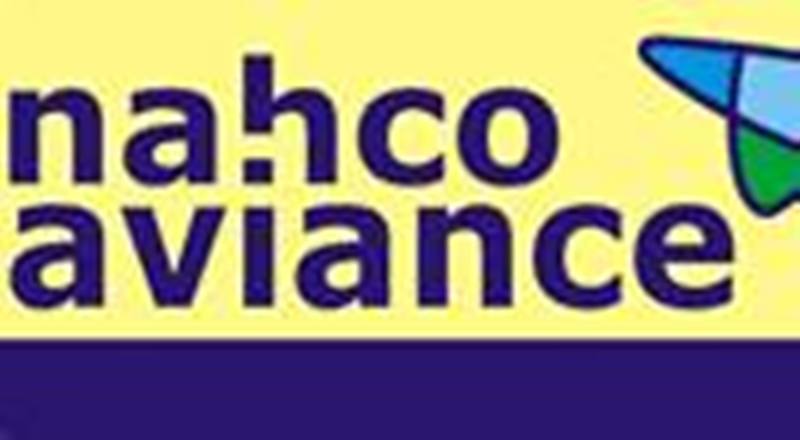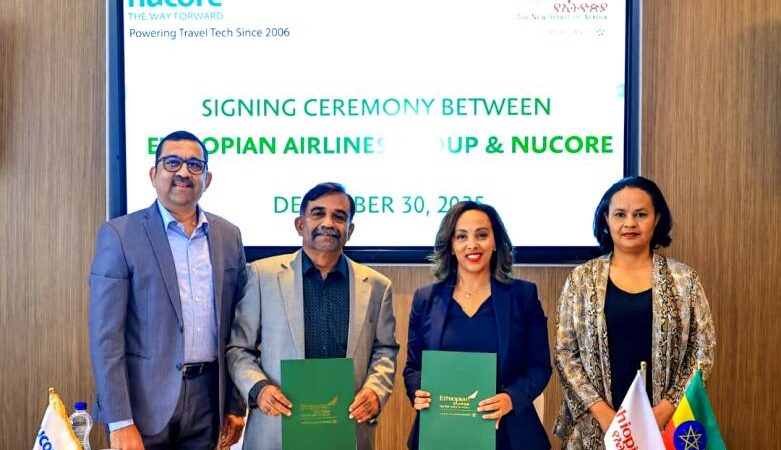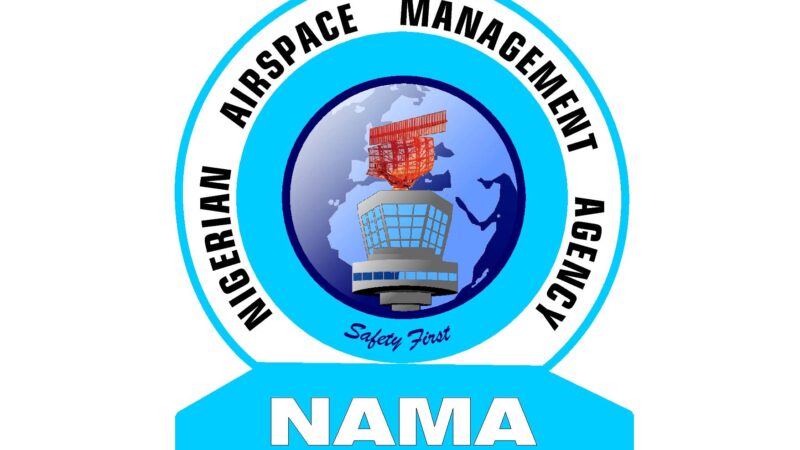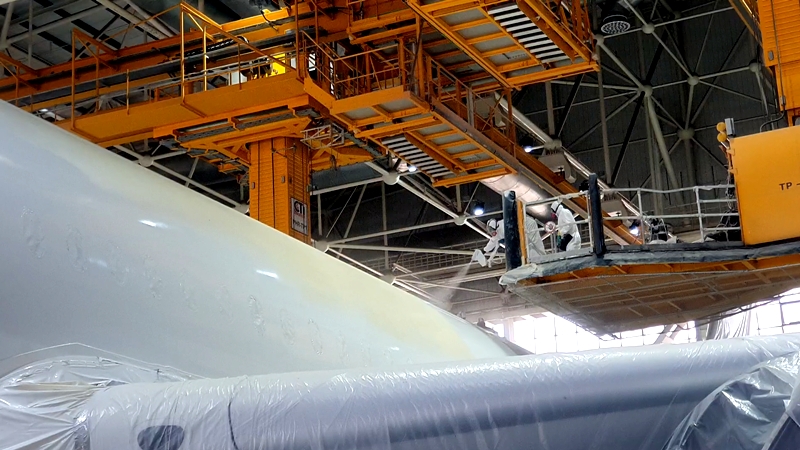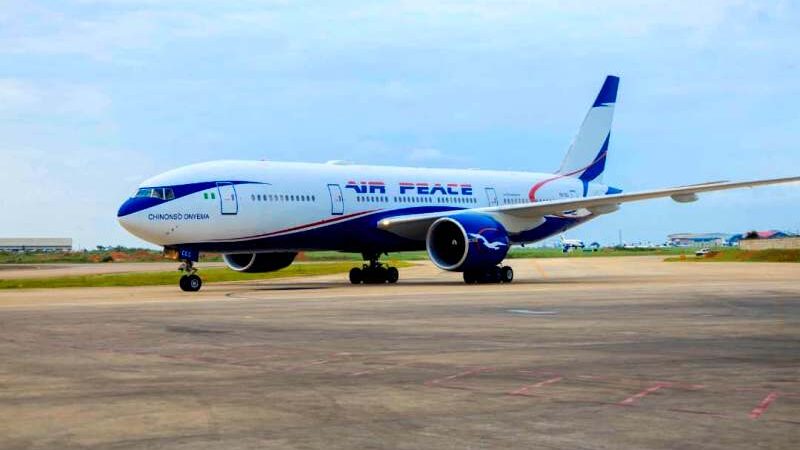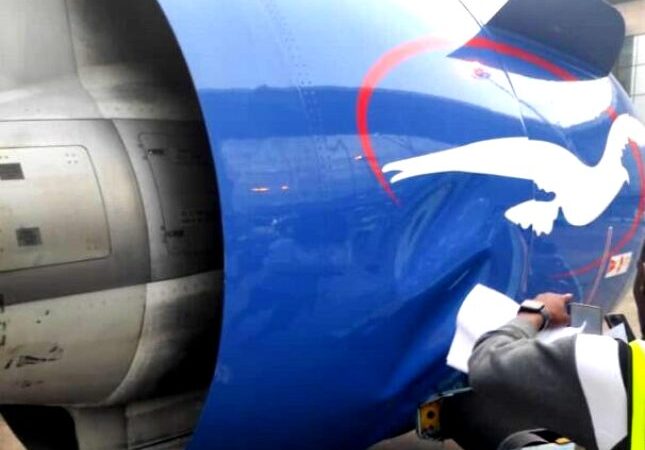Brain Drain: NCAT Loses Over 20 Technical Staff In Five Years

The Rector of Nigeria College of Aviation Technology (NCAT), Zaria, Capt. Alkali Mahmud Modibbo says the college has lost over 20 technical staff within the last five years.
Speaking in an interview during the 7th Aviation Africa Summit held at International Conference Centre, Abuja, Modibbo said: “We have lost more than 20 technical staff in the last five years to other greener pastures. When your salaries and allowances don’t measure up with the other colleagues, then people start to look for better places that they can go.”
“Though, at times, we have the hitch of instructors; the airplanes would be there but we don’t have enough instructors to handle the training. This is so because of our remuneration. The college is a Federal Government institution and we are paid through the Integrated Payroll and Personnel Information System (IPPIS) and the salaries for IPPSS is a government policy, which you can’t unilaterally change. If the Federal Government is not ready to increase salary, there is nothing you can do on your own, but we are trying to see if we can increase allowances for our technical staff, especially the flying instructors, engineering instructors, the air traffic services and control so that we could retain them.
We need more technical staff to train our students. The Nigerian Airspace Management Agency (NAMA) is suffering the same pain as we are experiencing. According to the International Civil Aviation Organization (ICAO), NAMA is below standards with the air traffic controllers. So, NAMA comes and grab our air traffic controllers. The air traffic controllers run to NAMA because the salaries and allowances are four times better than what we can offer here. This is not so much noticed in NCAA.
The Ministry is trying to come in for NAMA and NCAT to ensure that these things are resolved so that they will stop poaching our instructors. The only thing we can do is to first adjust our allowances and salaries. If we do that, then we can seek permission to recruit technical staff and instructors, but we have some instructors undergoing training on piloting at the moment. In a year or two, we will be happy with what we have, but we need instructors in the areas of air traffic control service,” he explained
On the college’s fleet, Modibbo said “In fact, we have more than 20 airplanes at the moment used for training. We have 15 TB 9 and five TB 20s. The past regime went into an agreement with Diamond Aircraft Manufacturers. They were going to buy us 20 more airplanes, which are Diamond type. We have received nine of such airplanes now and we have additional 11 aircraft to go. We presently have two multi-engines, which is Diamond 42 and seven Diamond 40s. The 40s are single engines. With that we have enough airplanes that can be used to train pilots.”
On the two Bell 206 helicopters that were alleged to have been missing, the Rector said: “First and foremost, airplanes don’t get missing; if an aircraft takes off, it must land. In the process of landing, the aircraft would be asked so many questions of where it is coming from and going into. The two helicopters were acquired by the Federal Government about 12-13 years ago during the time of former President Goodluck Jonathan. It was purchased for the purpose of training pilots, but that kind of helicopters, you can’t use them for initial training of pilots. And what the college does is basic training.
The helicopters have jet engines and with jet engines, it is so expensive that an hour training would take you your entire Private Pilot Licensing (PPL) on the piston engine airplanes. So, the Ministry of Aviation decided to sell the helicopters and replace them with piston engine helicopters. The only way you can sell it and get your money back; it is by auction, which is the approved process for selling government properties.
The process started in 2019, we filed all the papers and requested for approval and evaluation from the ministry. The ministry wanted us to sell it by the bluebook rating, which is the new helicopter prices, but we cannot sell old helicopters using the bluebook pricing. So, we had to request the ministry to look into that issue and we told them that the aircraft have been with us for more than 10 years, redundant in the hangar. Yet, we maintain the helicopters annually to the tune of N500 million to sit in the hangar. Yet, we don’t use it for training or to source any revenue from it. It is a waste for the college because the helicopters must be serviceable all the time. For the 12 to 13 years period, none of the two helicopters reached 40 hours flying time.
We talked to the ministry and the minister agreed and approved the sales of the helicopters and we followed the due process. We wrote to the Ministry, requesting to the Ministry of Works to get valuers to evaluate the helicopters, which was done. The Ministry of Works sent this to approved Federal Government auctioneers who came over and the helicopters were auctioned and at the end of the day, the helicopters were sold to two different companies. The helicopters were sold at about $600,000 each.”
He further explained that NCAT has never “trained anybody on helicopters at the college. Probably, the past government didn’t seek advice from NCAT and when the government wanted to purchase helicopters for its agencies, it decided to include NCAT. The government then, acquired 10 helicopters for the Nigeria Police, bought for the Nigeria Customs Service (NCS), the National Emergency Management Agency (NEMA) and others. The government then considered two Bell 206 helicopters for NCAT.
If the government had involved NCAT, we would have told them the type of aircraft we can use for training, which is piston engine helicopters, but the Bell 206 you cannot use for training. There is nowhere in the world that the helicopter type is used for training. It’s like you using a Boeing 737 aircraft to teach someone how to become a pilot, you don’t do that.”
Modibbo admitted that the 70% score by Nigeria at the recent International Civil Aviation Organization (ICAO) Universal Safety Oversight Audit Program (USOAP) audit was not a pass mark but that audit is not a witch hunt, but to help you to put things right.
“It is good to have audits and if you have some open items, it will help you to close them and even do better. If you get things easily on a platter of gold, you will relax. The ICAO auditors will come back in another 18 months to come and see if we have closed the gaps noticed. In a nutshell, Nigeria is doing very well,” said Modibbo.

